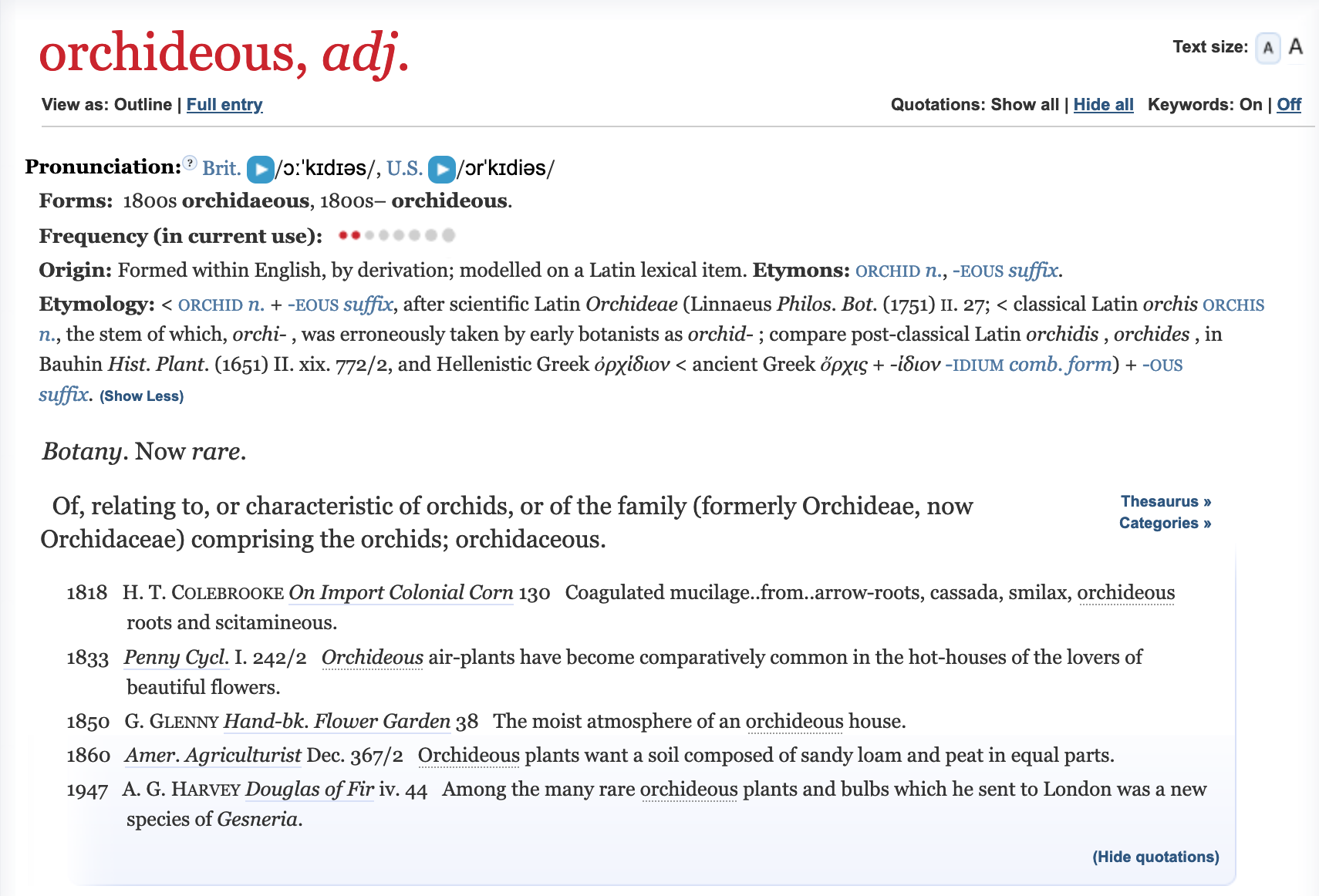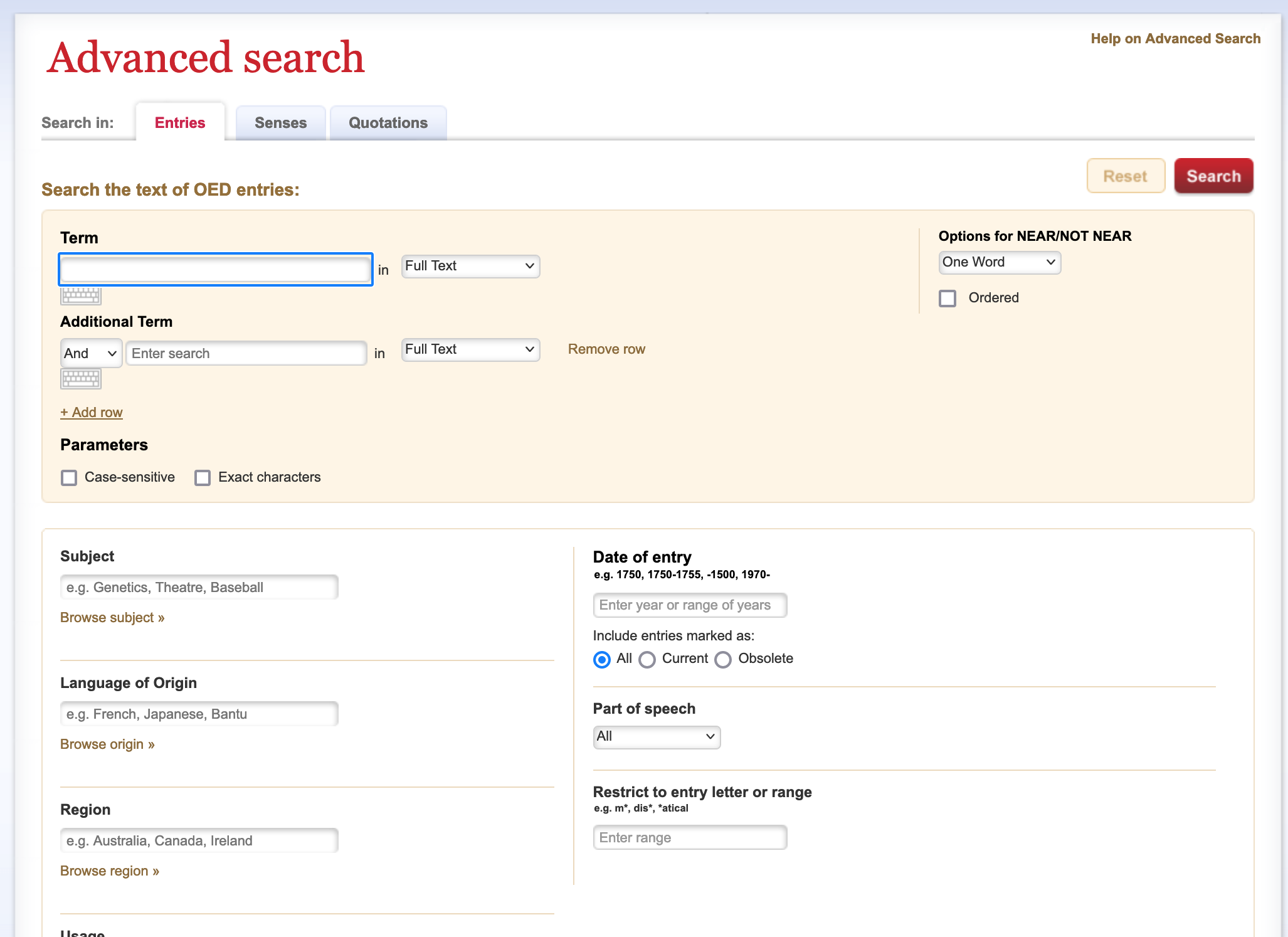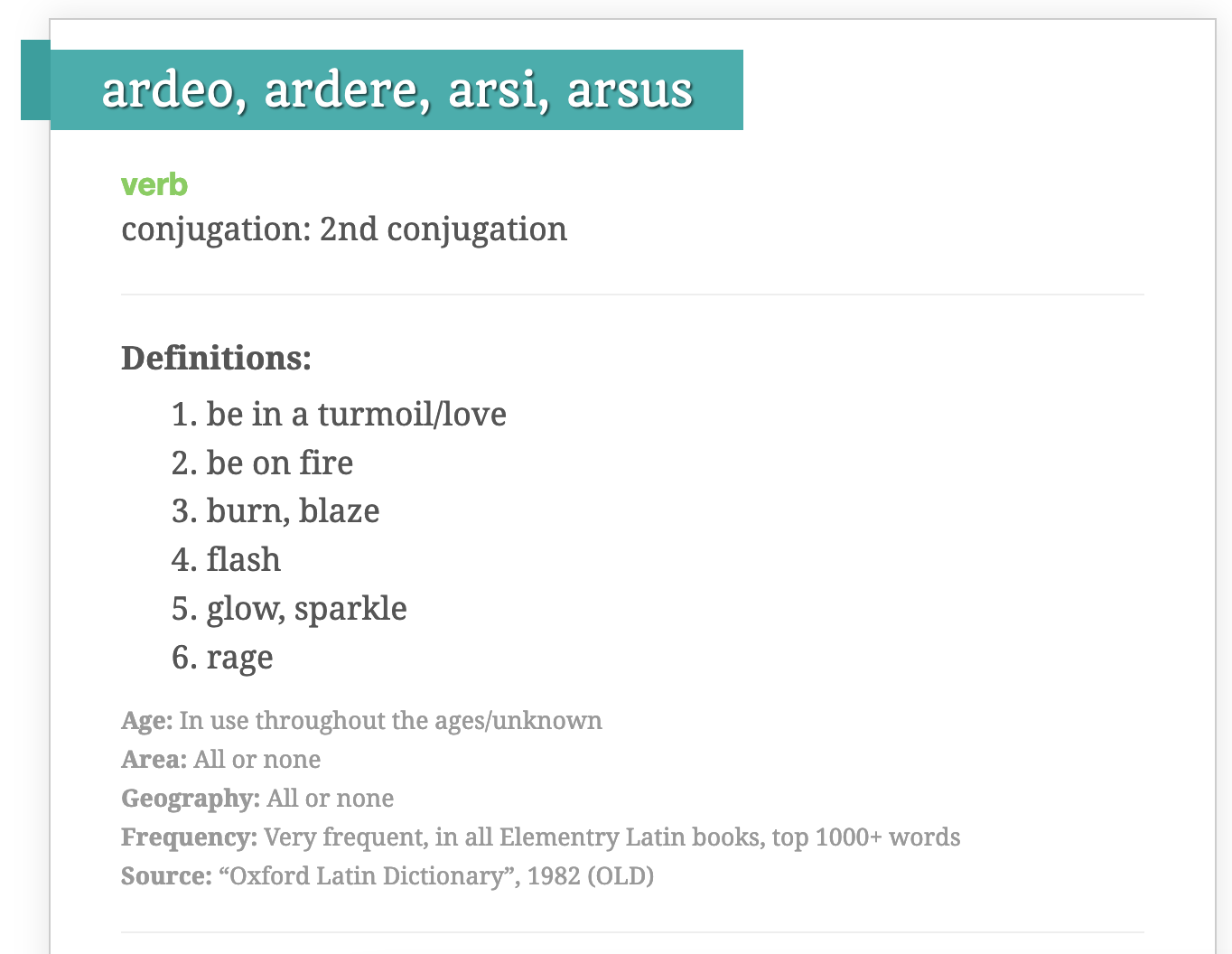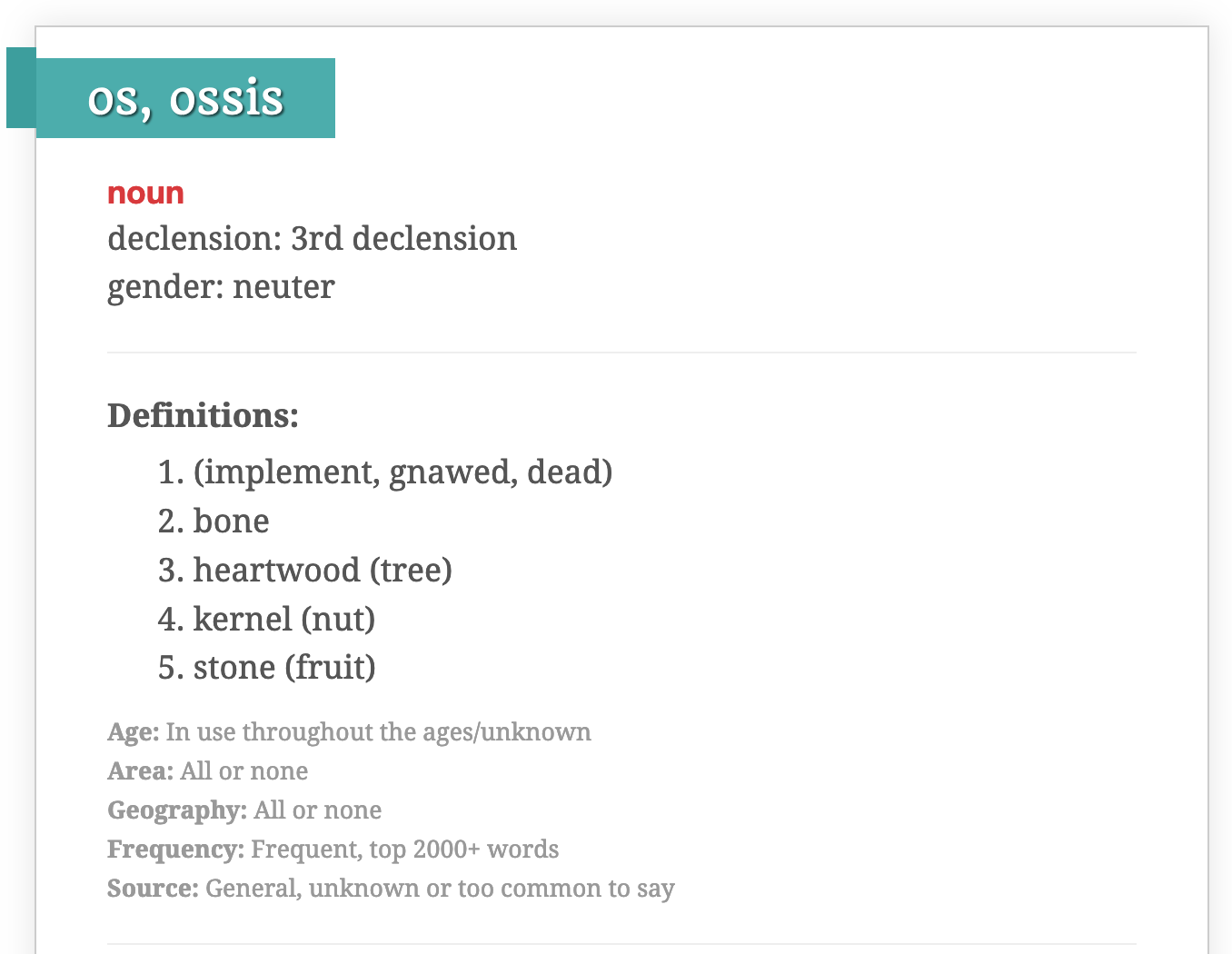|
Word of the day:
misfact · verbto make incorrectly |
|
To compile the corpus for Lyre's Dictionary, I've used a handful of different online tools to learn the origins of words, identify the elements they share, and find new words through their connections to the ones I know.
The Oxford English Dictionary has been an invaluable resource for this work. It has a wide breadth of contents, including uncommon and archaic words, detailed etymologies on where these words come from, and powerful search tools that can be used to discover new words and answer various questions.
The simplest way I use it is just to look up any word that comes to mind to find its etymology – I can then make a morph out of its roots, or confirm hunches about how it's put together. There are also entries for prefixes and suffixes, which have explanations on usage that can help distinguish between different meanings with the same form, or clarify changes based on context.
But the extra search tools allow the OED to be used to answer other kinds of questions as well. For example, by searching just etymologies, I can enter an ancient root word and get a list of English words that derive or relate to it in some way, pulling any new roots or affixes I find it joined with into the corpus. The same can be done with affixes to find out what kinds of roots they can attach to, and if their meanings vary based on the nature of the root (for instance to find that while '-culture' can be used in reference to land, such as 'agriculture', or raising animals as in 'apiculture', we also find a case in 'menticulture' of using it to indicate cultivating some power or faculty).
It's also possible to search for words using wildcards, to find words that contain a given sequence of letters. This can be used to answer questions about how commonly certain suffixes can appear together (for example, how many words end in '-ical'?), or to narrow down to cases with particular spellings (which words, like 'piety', take the '-ety' form rather than the more common '-ity' form?). Any of these can be further narrowed down by restricting the search to only words from a particular origin (such as all words ending in '-bre' that come from French).
This one requires a paid subscription to use.

|

|
Online Etymology Dictionary or Etymonline is free and easy to use, and contains similarly detailed etymologies, though it lacks some of the more complex features. I often use it for quick searches to check the etymology of a particular word or affix, or to get a second opinion on the OED. They largely tend to agree with one another, but occasionally Etymonline will have alternate explanations beyond what's in the OED, or asides that suggest new possibilities.

|
Latdict, naturally, is only relevant to roots from Latin, but it's provided some necessary details, such as different forms and grammatical information for Latin words that have a bearing on their appearance or how they combine with other elements in English. I've also used it in some cases to check words' Latin meanings when I needed guidance on how to gloss morphs.

|

|
– Robin, Summer 2023